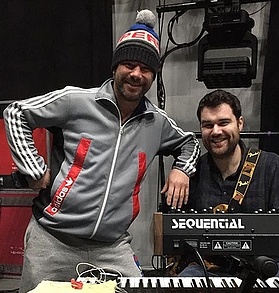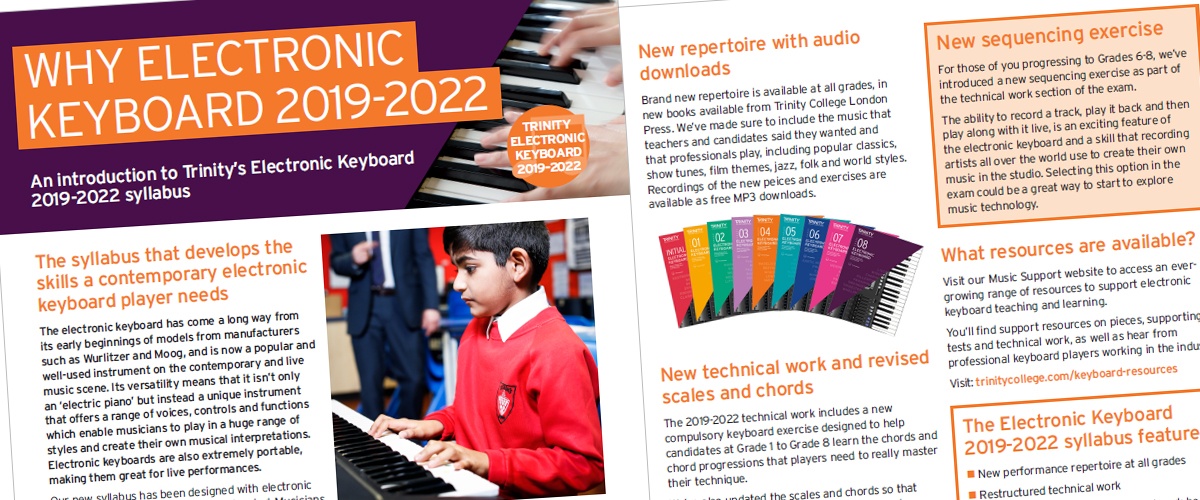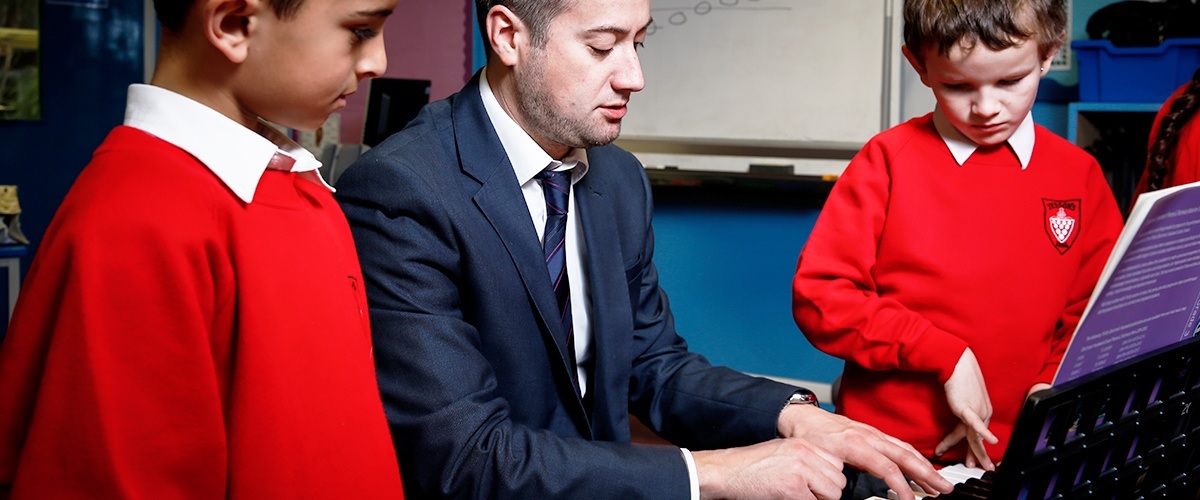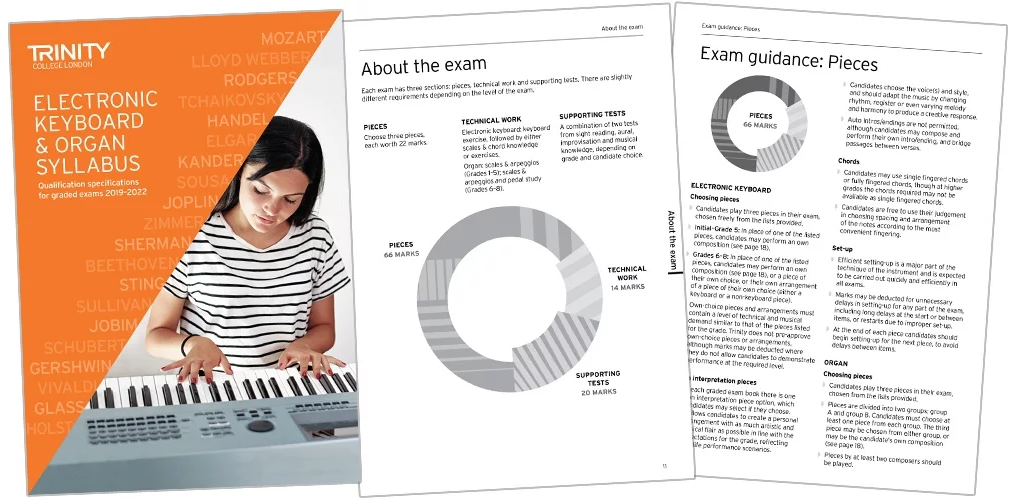Electronic Keyboard Pathways Q&A: Nate Williams
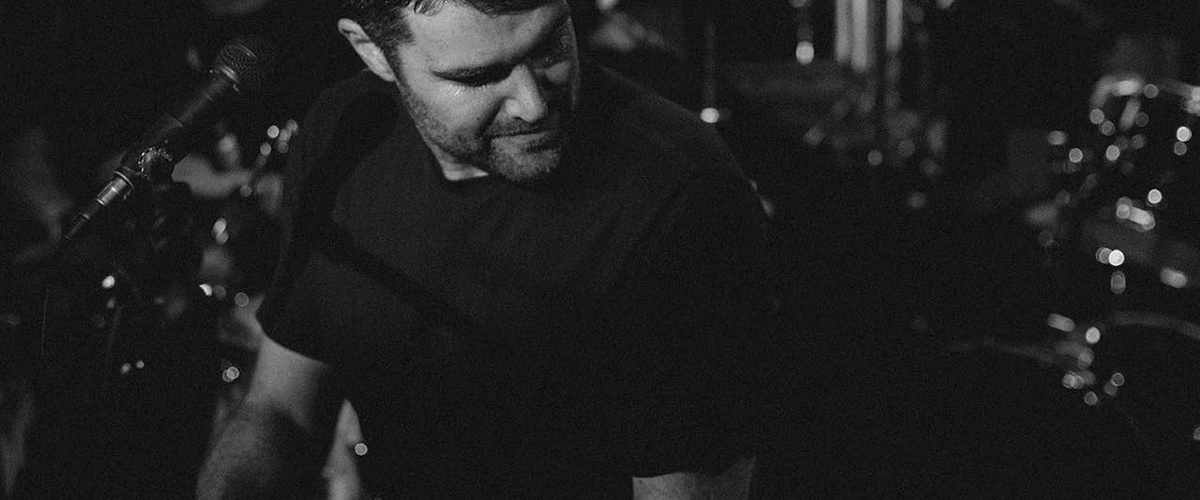
Who have you worked with and in what capacity?
I’m a multi-instrumentalist and I’ve been gigging since I was 13 years old, so listing the artists I've worked with might take a while, but the highlights include people like Huw Warren (on drums) and Katy B (on bass/synth bass), and I'm currently on tour with Jamiroquai (keys/guitar/backing vocals). I write and produce music for others; most recently working with Carmody and Dionne Bromfield. I have also put out two of my own releases.
What got you started on keys?
I started piano lessons at five years old. I was surrounded by music at home! I had lessons up until I was 16, then continued my development by researching my favourite musicians and copying them. I did up to Grade 6 on piano. It's the only instrument I formally studied, so did no grades on drums, bass or guitar.
Why do you think the electronic keyboard is a great instrument to learn instead of piano?
Well, I'd say keyboard is great to learn AS WELL as piano. They're a great combination. Obviously different beasts, but totally worth working on both. Keyboard allows you to cover so many bases. From bass to sound fx, strings, samples, the list goes on! It's a massive area to get in to!
What advice do you have for young electronic keyboard learners?
I would say definitely work on a grasp of basic synthesis. Learn about oscillators, envelopes and signal flow. Most keyboards do the same things really, so once you know the basics, you can get going quickly. I used to (and still do) practise all the time, but it was mostly practising the musical stuff, like harmony and improvising etc. I'd say it's important to practise actually using the instrument in a technical way too. I certainly came to that side of things a little late, so was always looking for presets etc. Nothing wrong with presets, but it's nice to be able to just adjust the sound and get what you want quickly!
What advice would you give learners to help them understand why technique, scales and chord knowledge is just as important as playing songs?
I suppose the best example of a recent experience of this would be my audition for the Jamiroquai gig. I was asked to go to Jay Kay’s house (he’s the lead singer and face of the band), and play through a few tunes. Just string parts, and some chord stuff on a Rhodes. I was asked to improvise over a fairly unusual section in one of the new songs just as Jay walked into the room. This section just keeps grooving over an F#alt chord, and doesn’t move, so it was important to have some knowledge to get through it! Knowing the theory is good, but it really does need to be applied musically, otherwise it’s not of any use! Fortunately, I knew enough to perform well enough to get the gig!
Is it important to be able to play and understand a wide range of genres?
VERY! It has been so useful in terms of getting different kinds of work. I definitely understand the idea of focusing in one area, but if you can convincingly play bebop, then go out and convincingly play a country gig the following day, you’ll be called for all kinds of work. It’s all music… That’s how I see it.
What would you say to young learners about the importance of being able to engage with technology, and why is the electronic keyboard a great instrument for that?
I suppose the best thing about where we are at the moment in terms of technology is the fact that there’s almost an infinite amount of possibilities! The electronic keyboard is a vital part of today’s music industry, and crosses over into so many genres! Jazz isn’t just a piano thing anymore. Rock needs keys. Film scores need synths. It’s a very important tool, and it needs to be seen as its own thing. It’s not just a piano with different sounds. The touch is different, the style of playing is different, and the role it plays is different. The technology is what sets it apart from piano/organ/Rhodes etc. Don’t be scared of it!
Any other advice for young learners?
A big one is to not fear failure. Don’t worry about wrong notes, or not getting that solo quite right. It’s a wonderful way to learn. If the electronic keyboard sound isn’t perfect, for example, figure out why and develop as a musician!
Never stop learning. Always be pushing to improve aspects of your musicianship.
BE NICE TO PEOPLE! And tell people when they’re doing a good job. It goes a long way.
What advice would you give to piano teachers new to the Electronic Keyboard syllabus?
Learn that it is not to be used like a piano. The feel of a piano is completely different. We learn how a piano fits sonically, but an electronic keyboard can sound as big as an orchestra, or as thin as a buzzing bee.
Learn about filters and shaping sounds with LFOs and envelopes.
Don’t be afraid of them… you can’t break them by experimenting!
